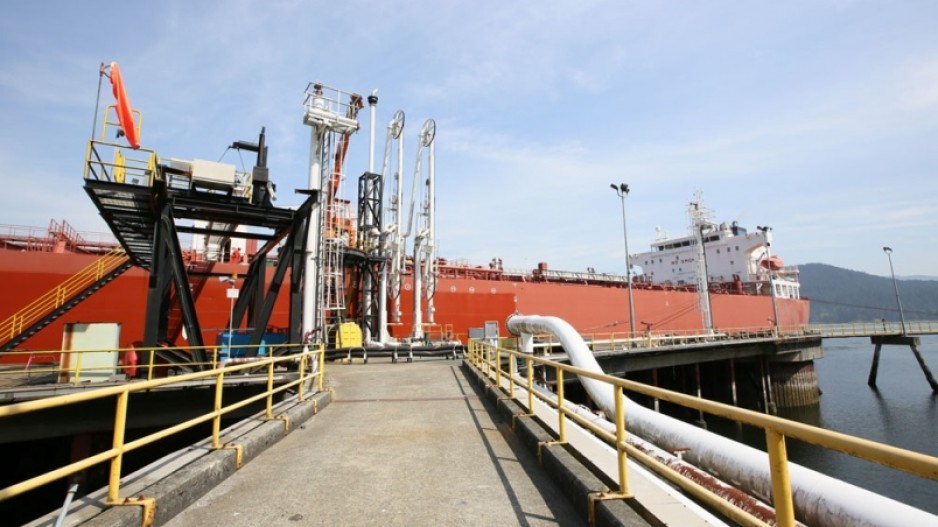Independent contractors in B.C. last week called on the Justin Trudeau government and the National Energy Board (NEB) to put their collective foot down and override the B.C. government’s plan to impose new restrictions on the Trans Mountain pipeline.
And Alberta Premier Rachel Notley fired a first shot across the bow in what could become a war similar to the one former B.C. NDP premier Glen Clark fought with Ottawa when she announced that talks with B.C. on buying power have been cancelled. Notley said B.C. will lose $500 million in potential revenue as a result.
While B.C.’s new restrictions might not be the “nail in the coffin” for Trans Mountain that environmental groups are hoping it will be, it telegraphs another negative signal from B.C. to the international investment community, according to the Business Council of British Columbia (BCBC).
“This announcement will have a detrimental effect on B.C.’s reputation as a place to deploy capital and create private-sector jobs,” said BCBC president Greg D’Avignon.
Last week, B.C. Environment Minister George Heyman announced his government’s plans to place new restrictions on diluted bitumen (dilbit) that moves from Alberta through B.C. by pipeline or rail.
They would include limiting increased volumes of dilbit moving by rail or pipeline through B.C. and requiring compensation for loss of public use of land in the event of a spill. The restrictions would not apply to dilbit that already moves through B.C. via rail or pipeline.
In other words, it targets the Trans Mountain pipeline-twinning project, which would nearly triple daily pipeline volumes to 890,000 barrels from 300,000. But the restrictions could also prevent increased dilbit movement by rail.
In addition to imposing new restrictions, Heyman said his government will convene an independent scientific panel to try to fill in knowledge gaps about dilbit’s behaviour in the marine or freshwater environment. Those gaps were identified in 2015 by a Royal Society of Canada study.
One of the concerns with diluted bitumen is that prolonged weathering at sea could result in heavy, tar-like bitumen separating and sinking, making a cleanup more difficult.
The panel will be asked to make recommendations on “if and how heavy oils can be safely transported and cleaned up, if spilled.”
Heyman said the scientific panel’s work is expected to take about two years.
The $7.4 billion twinning project was originally slated for completion around the end of 2019. But permitting delays and court challenges have pushed back the twinned pipeline’s in-service date to December 2020.
Any restrictions the province might try to impose would only prevent Kinder Morgan Canada (TSX:KML) from increasing volumes of dilbit once the twinning project is complete.
They would not prevent the company from building the new pipeline and expanding its Burnaby terminal.
Following public consultation on the planned restrictions – a process expected to take several months – a new law to implement them would go to cabinet for approval, Heyman said. The restrictions would not apply until then.
Heyman added that the restrictions’ implementation does not depend on the outcome of the scientific panel’s work.
“The scientific review is a separate process,” Heyman said. “It’s obviously related but they don’t depend on each other.”
By the time the restrictions go into effect, Kinder Morgan could ask the federal government to override the B.C. restrictions.
Pipelines are a federal jurisdiction, and provinces are subordinate to the federal government, so unless the BC NDP government is prepared to invoke the notwithstanding clause in the Canadian Charter of Rights and Freedoms and go to war with the Trudeau government, Ottawa, through the NEB, could simply overrule B.C.
It has already showed a willingness to do so, when the NEB ruled late last year that Kinder Morgan could ignore the permits Burnaby had yet to issue for things like cutting trees and proceed with an expansion of the Westridge Marine Terminal in Burnaby.
The NEB also has set up a new dispute resolution process to deal more quickly with any future disputes over permitting.
In response to B.C.’s announcement last week, federal Natural Resources Minister Jim Carr reiterated the federal government’s support for the Trans Mountain project.
“The decision we took on the Trans Mountain expansion remains in the national interest,” he said in a press release. “And it was a decision based on facts and evidence – this has not changed.”
The NEB approved the Trans Mountain pipeline project in 2016, with 157 federal conditions attached. The B.C. government under the Liberal government added additional conditions, and now the new NDP government will add more.
“This is simply a stall tactic meant to flout the federal government’s jurisdiction,” said Chris Gardner, president of the Independent Contractors and Business Association of BC. “It’s time for Prime Minister Trudeau to act.
“Canada and B.C. cannot afford to have governments finding ways to use red tape to try and choke out properly approved infrastructure projects. We do not believe the province has this authority, and we call on the federal government to act again in the national interest to move this project forward without further delay.”




